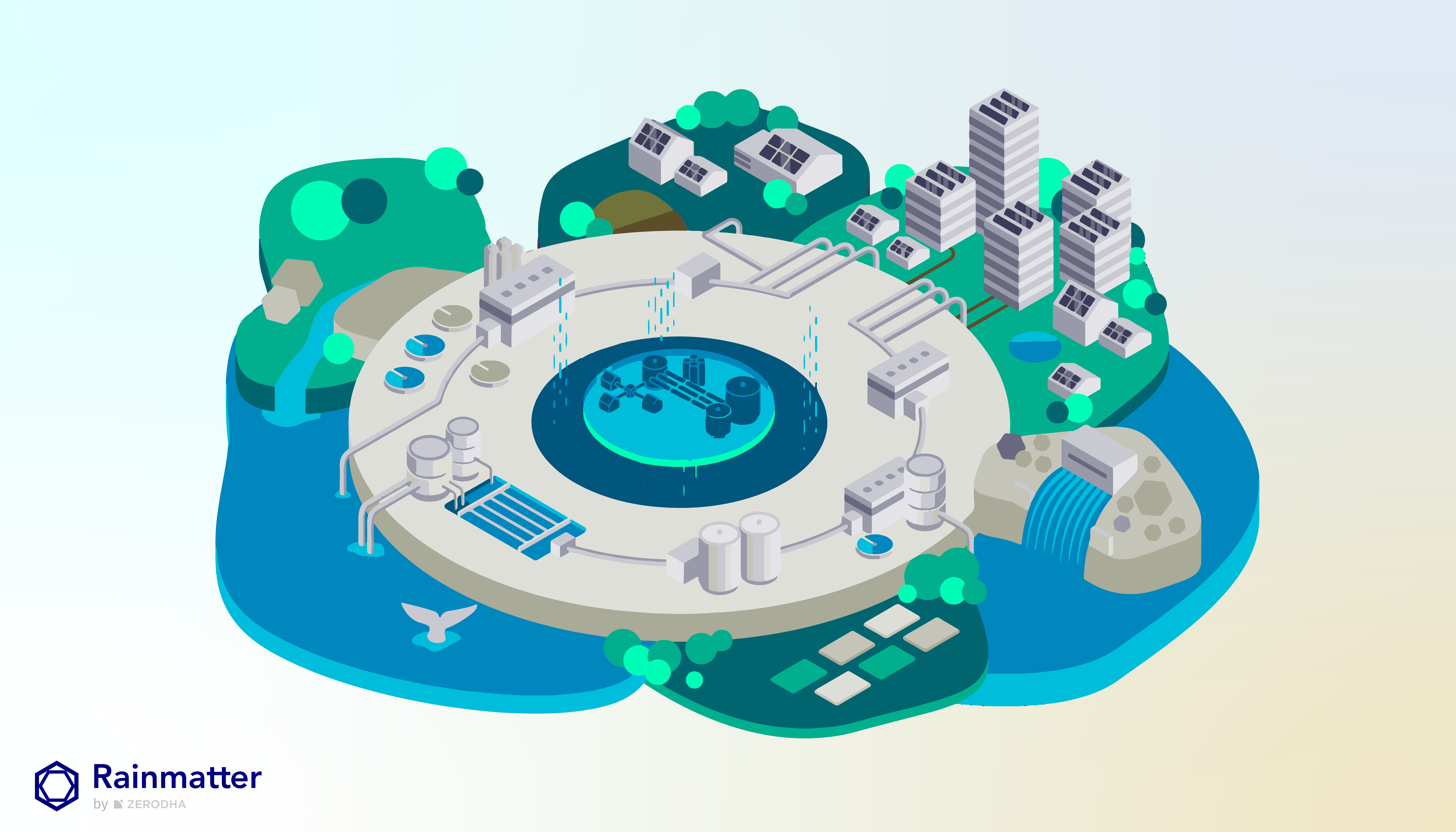
Boson: Energising grey wastewater into whitewater
Rivers drive civilisations. Rains feed the reservoirs and groundwater. Of course, there are many factors that affect rivers and rains, like climate, weather, forests, agriculture, urbanization, industrialization etc, which in turn affect how much water we have to live on. India is endowed with more than 400 rivers originating from four main watersheds – the Himalayas, the Aravallis, the Western Ghats and the Eastern Ghats, but its rains are more seasonally and geographically variable. The variability – and mismanagement – has led to India being on the list of countries whose cities are staring at Day Zero – the day residential taps need to be turned off. Bangalore and Chennai are on that list.
Vikas Brahmavar has childhood memories of water-related fights between neighbours hailing from Karnataka and Tamil Nadu. In his forties, he still sees neighbours fighting. So when he had the urge to do more meaningful work, he turned to water.
Watch the episode to see what Brahmavar and his co-founder, Gowthaman Desingh, are doing to resolve the Bangalore water crisis.
Wastewater treatment is an urgency
Bangalore requires its larger residential apartment complexes to treat its sewage onsite and use the treated wastewater for toilet flushing and gardening. The balance is to be put into the stormwater drains to replenish lakes in and around Bangalore or can be sold. The issue is that the apartments generate more wastewater than what they can use, but they are not able to sell it; most dump untreated sewage into the drains leading to the toxic pollution of lakes. The municipal body is not capable of policing these open flouting of rules, the recent hike in fines notwithstanding. It tried to coax real estate builders to buy the water to cure cement, but the poor quality of water nixed that suggestion.
On the other hand, the same apartment complexes are paying for water tankers to augment their needs. The tankers source their water from a combination of municipal and groundwater sources.
Boson tries to solve this problem by further treating the wastewater onsite to a level where it can be sold to commercial and industrial clients. It uses established technologies for the further treatment, with its innovation being in the number and sequence of these. Boson’s 11-step process is customised to the start and end quality.
Harnessing the tanker industry
As it is with many other solutions, the real innovation is not the technology, but the engagement with stakeholders. Boson’s advanced water treatment is useful only if there are buyers for the treated water, and it is cost effective for the treated water to be delivered to them.
Boson got its break with a drycleaning business that was able to lower its costs and environmental pollution. It was then able to convince a range of commercial clients such as shopping malls which appreciated the better quality of water for their air conditioning cooling towers, as well as industrial units such as semiconductors.
The crucial link between the apartment complex sellers and the commercial buyers is the logistics of water transportation. ‘Beyond seven kilometers, we are transporting more diesel than water,’ says Brahmavar – a statement that should lead us to question the economics of the water tanker industry. Instead of competing with the tanker industry, Boson works with them by hiring them to transport the treated water within a 5 to 7 kilometer radius. When asked who can be co-opted to scale this model, Brahmvar believes that the tanker industry could be part of the solution as they would also prefer a more certain supply of water.
The business model is also in line with the modern pay-as-you-go approach we see everywhere. Boson puts in the capital to fund the treatment plant at the residential complex, recovering the cost over 3-odd years by selling the treated water.
Boson raised 10 crores rupees ($1.2 million) in equity funding from Rainmatter in 2024 after an initial round from IAN in 2022 to scale its operations.
Rural solutions
While Boson works mostly in urban areas, it teamed up with a NGO called Biome Environment Trust, also supported by Rainmatter Foundation, to revitalise one of the two lakes in Devanahalli on the outskirts of Bangalore. Compared to its urban projects where residential is the supplier of wastewater, the rural project involved cleaning the water from the lake which already has wastewater from Bangalore to supply clean water to the town’s residents. Boson used a simpler 4-step process in this instance as the wastewater is already diluted with fresh rainfall and then filtered naturally through the earth, turning up in a relatively clean aquifer.
Biome’s Avinash Krishnamurthy joined us at the lake in Devanahalli to explain how the rural and urban water systems are connected. More on Biome’s involvement –
https://biometrust.org/devanahalli-and-its-water-then-and-now/
Brahmavar believes that decentralization is the key to solving the water crisis, not just in India where cities are growing faster than what urban planning can handle, but also in global cities. Boson appears to have come up with a scalable solution that other entrepreneurs and cities could adapt for their situations.
